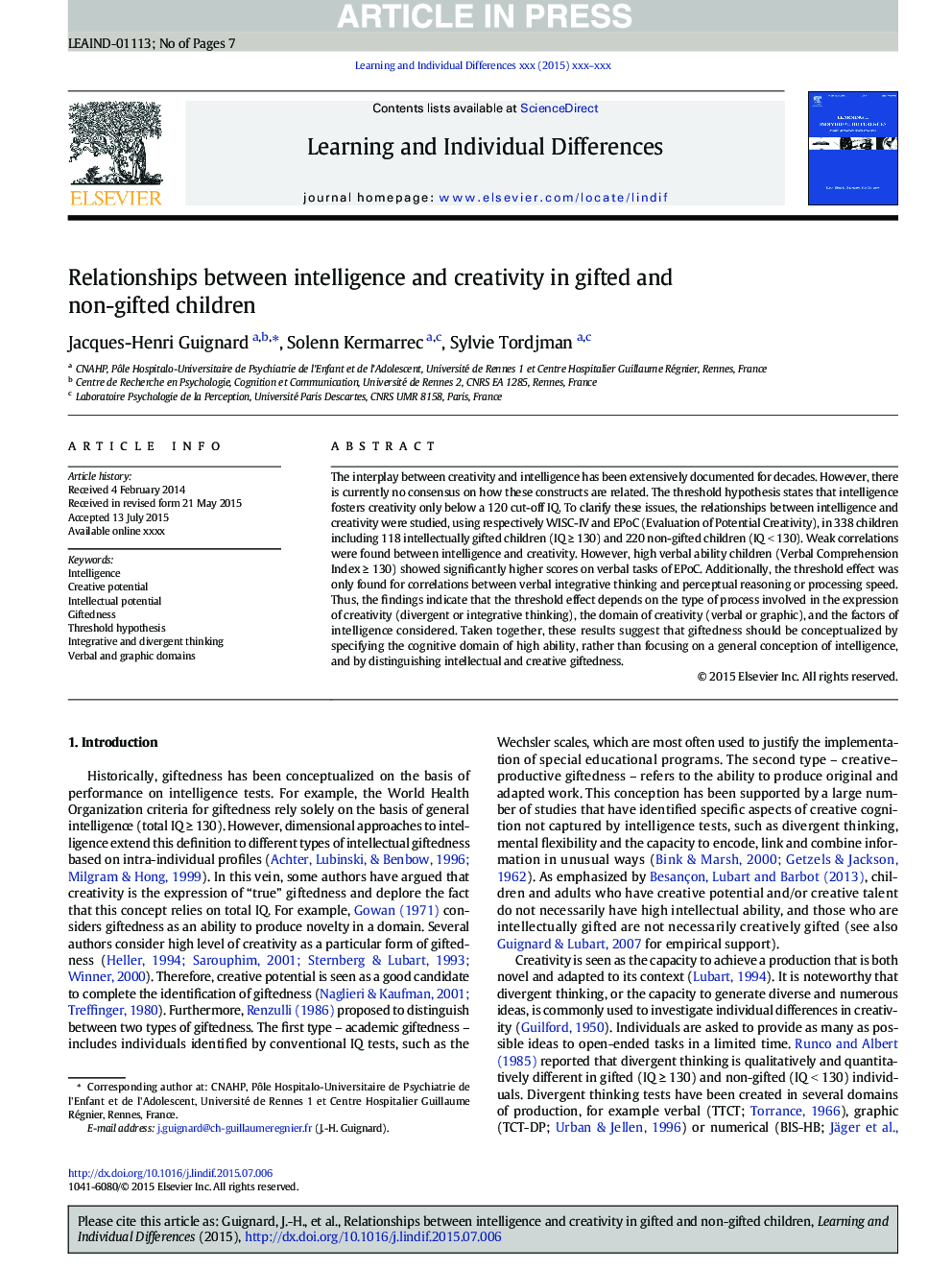| Article ID | Journal | Published Year | Pages | File Type |
|---|---|---|---|---|
| 4940087 | Learning and Individual Differences | 2016 | 7 Pages |
Abstract
The interplay between creativity and intelligence has been extensively documented for decades. However, there is currently no consensus on how these constructs are related. The threshold hypothesis states that intelligence fosters creativity only below a 120 cut-off IQ. To clarify these issues, the relationships between intelligence and creativity were studied, using respectively WISC-IV and EPoC (Evaluation of Potential Creativity), in 338 children including 118 intellectually gifted children (IQ â¥Â 130) and 220 non-gifted children (IQ < 130). Weak correlations were found between intelligence and creativity. However, high verbal ability children (Verbal Comprehension Index â¥Â 130) showed significantly higher scores on verbal tasks of EPoC. Additionally, the threshold effect was only found for correlations between verbal integrative thinking and perceptual reasoning or processing speed. Thus, the findings indicate that the threshold effect depends on the type of process involved in the expression of creativity (divergent or integrative thinking), the domain of creativity (verbal or graphic), and the factors of intelligence considered. Taken together, these results suggest that giftedness should be conceptualized by specifying the cognitive domain of high ability, rather than focusing on a general conception of intelligence, and by distinguishing intellectual and creative giftedness.
Related Topics
Social Sciences and Humanities
Psychology
Developmental and Educational Psychology
Authors
Jacques-Henri Guignard, Solenn Kermarrec, Sylvie Tordjman,
